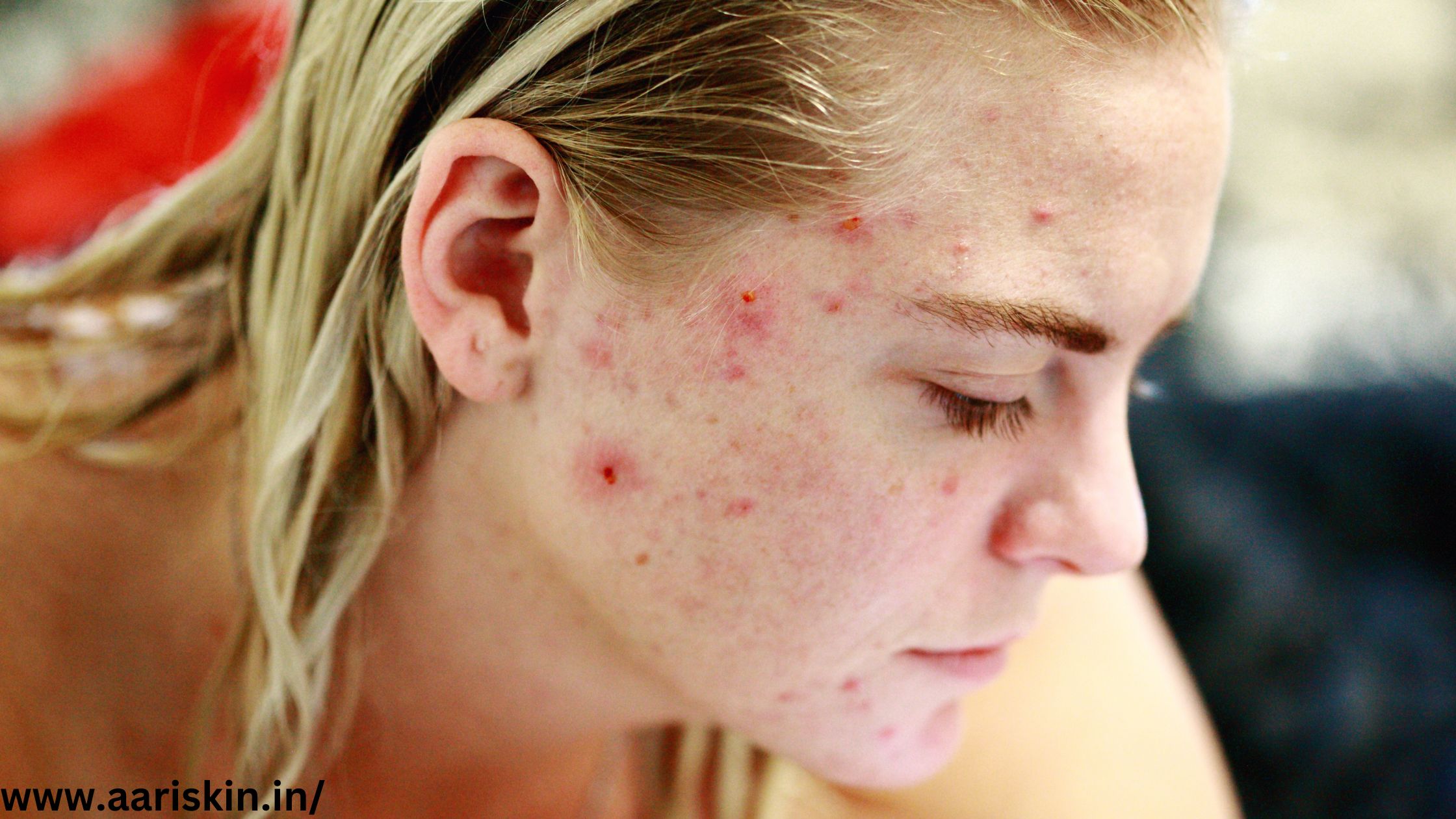
Acne is one of the most common skin conditions in the world, affecting millions of people of all ages. It can be a source of immense frustration, as it can be difficult to treat. There are many different types of acne, each with their own unique set of causes and treatments.
In this blog post, we will explore the different types of acne and how to treat them effectively. From blackheads and whiteheads to cysts and nodules, read on to learn more about the different types of acne and how to get rid of them for good.
Different types of acne
Acne is a very common skin condition that can affect people of all ages. There are many different types of acne, and each type can be treated in different ways.
The most common types of acne are blackheads, whiteheads, and pimples. Blackheads are small, dark-colored bumps that form when hair follicles become clogged with oil and dead skin cells. Whiteheads are similar to blackheads, but they are much smaller and have a white center. Pimples are small red or white bumps that can be painful and often occur in groups.
Other less common types of acne include cysts, nodules, and papules. Cysts are large, deep-seated pimples that often cause scarring. Nodules are large, hard bumps that form deep within the skin and may also cause scarring. Papules are small, reddish bumps that can be tender to the touch.
Acne can be treated with over-the-counter medications, prescription medications, or a combination of both. The best acne treatment in Jaipur for you will depend on the severity of your acne and your individual skin type.
Causes of acne
There are many different factors that can contribute to the development of acne. For some people, it may be due to genetic factors, while for others it may be due to hormonal changes or even certain medications.
One of the most common causes of acne is an overproduction of sebum, which is a type of oil that is produced by the sebaceous glands. When there is an excess of sebum, it can clog the pores and hair follicles, leading to the growth of bacteria and inflammation.
Acne can also be triggered by hormonal changes, such as during puberty or pregnancy. Certain medications, such as corticosteroids or lithium, can also cause acne breakouts.
How to treat acne
Acne is a common skin condition that can affect people of all ages. There are many different types of acne, and each type requires a different treatment approach.
Mild acne can be treated with over-the-counter (OTC) medications, such as benzoyl peroxide or salicylic acid. These medications work by killing bacteria and reducing inflammation. More severe acne may require prescription medication, such as an oral antibiotic or a retinoid.
If you are struggling with acne, it is important to see a best dermatologist in Jaipur for treatment. They can help you create a customized treatment plan that will address your specific needs.
Over-the-counter treatments
There are a variety of over-the-counter treatments that can be effective in treating different types of acne. For milder forms of acne, over-the-counter topical treatments containing benzoyl peroxide or salicylic acid can be helpful in clearing up the skin. For more moderate to severe forms of acne, prescription strength topical treatments or oral medications may be necessary. Some common oral medications used to treat acne include antibiotics, isotretinoin, and birth control pills. It is important to speak with a dermatologist or other healthcare provider to determine which treatment option is best for you.
Prescription treatments
There are many different types of acne, and each type requires a different type of treatment. Here are some common prescription treatments for acne:
-Topical retinoids: These are applied to the skin and help to unblock pores, reduce inflammation, and promote cell turnover. They can be used as a spot treatment or over the entire face.
-Oral antibiotics: These helps to kill bacteria and reduce inflammation. They can be taken for a few weeks or months, depending on the severity of the acne.
-Isotretinoin: This is a powerful medication that is usually only prescribed for severe cases of acne that have not responded to other treatments. It can have serious side effects, so it is important to discuss all the risks and benefits with a doctor before starting this medication.
Natural treatments
Acne is a common skin condition that affects people of all ages. There are many different types of acne, and each type requires its own unique treatment approach.
One of the most effective ways to treat acne is with natural methods. Natural treatments for acne can be just as effective as conventional treatments, but they often come with fewer side effects.
There are many different natural treatments for acne, and the best approach depends on the type of acne you have. For example, if you have inflammatory acne, you may benefit from a topical treatment that contains anti-inflammatory ingredients like aloe vera or tea tree oil.
If you have non-inflammatory acne, you may benefit from a cleansing routine that includes gentle exfoliation and deep cleansing. You may also want to try a spot treatment that contains ingredients like sulfur or salicylic acid.
No matter what type of acne you have, there’s a natural treatment that can help. Experiment with different approaches until you find one that works for you.
When to see a doctor
Acne is a common and treatable skin condition that affects people of all ages. While there are many over-the-counter and prescription treatments available, some people may need to see the best skin specialist in Jaipur for more severe acne.
If you have any of the following symptoms, you should see a doctor:
- Your acne is not responding to over-the-counter treatments
- You have large, painful bumps under your skin ( cysts or nodules)
- You have scars from previous acne outbreaks
- Your acne is causing embarrassment or social anxiety
- Your acne is impacting your daily life
Conclusion
There are many different types of acne, and each type requires a different treatment approach. For mild acne, over-the-counter treatments like benzoyl peroxide or salicylic acid can be effective. For more severe acne, prescription medications like retinoids or oral antibiotics may be necessary. And for the most severe cases of acne, isotretinoin (Accutane) may be prescribed. If you’re not sure what type of acne you have, it’s important to see a dermatologist so that you can get the appropriate treatment. With the right approach, any type of acne can be managed successfully.



